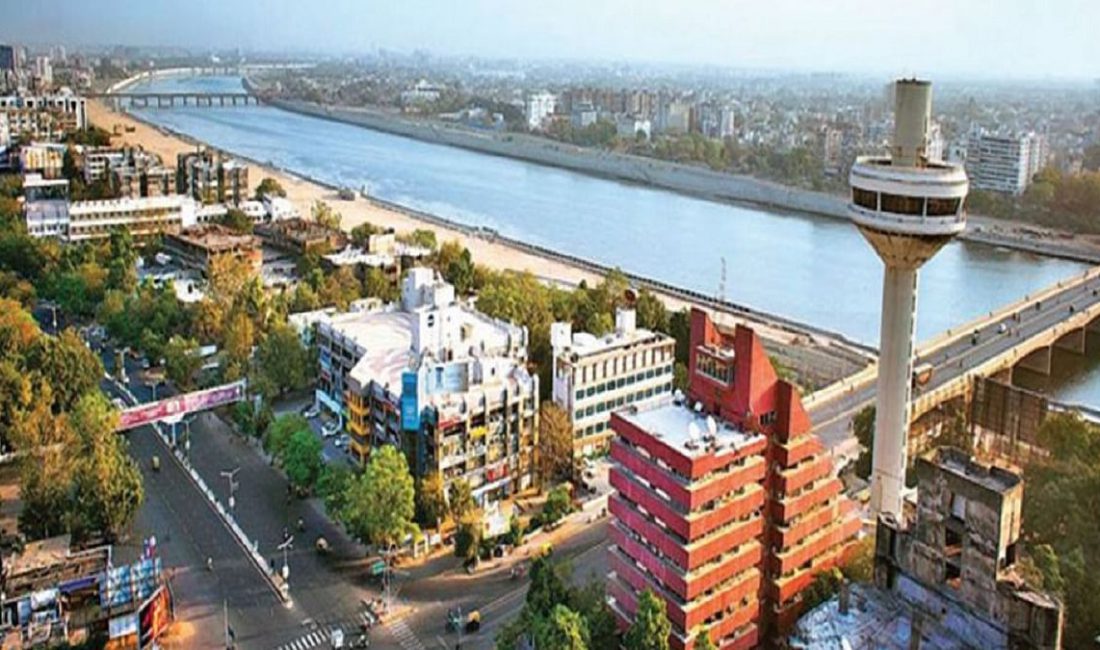Apartheid in Ahmedabad
When segregation in the United States was legally ended in the 1960s, the government passed laws that sought to integrate the races, like the Fair Housing Act. It prevented discrimination in the buying and selling of properties which was keeping the races separate. All across Gujarat, in all major cities and in several towns, the government has done the opposite. Muslims are deliberately forced into ghettos through a law called the ‘Gujarat Prohibition of Transfer of Immovable Property and Provision for Protection of Tenants from Eviction from Premises in Disturbed Areas Act’.
The law was initially meant to be temporary and to protect during an episode of communal violence, those who would be vulnerable to forced eviction or could be coerced into eviction. What has happened instead is that 35 years after the law was introduced and 18 years after the 2002 riots, the law remains active even in cities when there is no violence.
Every three years, on 30 June, the law has been renewed for another three years. The tenth time will come on June 30, 2021.
In 2009, the Modi government amended the Act to give discretionary powers to the Collector to hold an inquiry suo motu and to take possession of property under the Act. In July 2019, another change was introduced. Now, it would not matter even if the sale was with free consent, and the fair value was paid to the owner.
The Collector could stop a sale of property if he felt at his discretion that there was any ‘disturbance in demographic equilibrium’ or ‘improper clustering of persons of a community’ or ‘likelihood of polarisation’, if the transfer took place. Punishment for transferring property without clearance was raised to six years in jail (it was six months when the law was first introduced).
Writing in Counter Currents (‘Disturbed Areas Act: A tool to fuel the communal divide’, August 10, 2019), Aman Mansuri explained that when the law was written in 1985, “Land mafias used to take advantage of the insecurity of people during the time of riots and coerced them to sell their property at a cheaper rate. The Act was introduced to save people from such exploitation.”
In May 2018, two activists, Nishant Varma and Danish Qureshi, challenged the constitutional validity of the Act in Gujarat High Court. The petitioners cited Gujarat’s reports to the National Crime Records Bureau (NCRB) which consistently showed that the state does not witness communal violence at a higher rate than other states. But the state government had still been increasing coverage of the law to cover more localities across the state.
The activists asked why, if the NCRB reports were true and communal harmony prevails in Gujarat, there is a need for the Disturbed Areas Act. I spoke to Qureshi who said permission was being refused on the ground that the area was communally sensitive to violence even though there were no FIRs filed to show that. He said the law had produced the strange reality that even foreigners could buy places in neighbourhoods that Gujarati Muslims could not. When the BJP government legislated the 2019 change in the law, Congress MLA Imran Khedawala opposed it for its targeting of Muslims. He said it was ironic that the BJP was insisting that all Indians be allowed to buy property in Kashmir when Indians couldn’t even buy it in their own state of Gujarat. Why this double standard and why was it that the BJP had claimed it had brought peace to the state when it was also continuing to officially say that its cities were disturbed? Why was this law still required 39 years after it was written, he asked, saying that the law violated the constitutional rights of Muslims.
The changes in the law have taken place amid the BJP vastly increasing the geographical areas where it is applicable. In 2017 and 2018, the BJP notified parts of Surat — where no large-scale violence took place even during the 2002 riots— and Bharuch as disturbed, because of a demand from BJP MLAs.
As of August 2019, there were 770 parts of Ahmedabad alone that were declared disturbed. On 25 February 2020, the Disturbed Areas Act was imposed in the town of Khambhat after violence against Muslims. First Post reported that the decision came after a mob of over 5,000 people gathered by the Hindu Jagran Manch was addressed by BJP leaders who raised communal slogans and called for all Muslim families to be ousted from Khambhat. The New Indian Express reported Gujarat’s minister of state for home Pradeepsinh Jadeja as saying that “such clashes are happening because of demographic changes”.
The Act is currently in force in large parts of the state’s three largest cities, Ahmedabad, Vadodara and Surat, and also in Bharuch, Kapadvanj, Anand and Godhra. These are also the places Gujarat’s Muslims are concentrated, effectively ghettoising them permanently.
On June 4, 2020, Gujarat imposed the Disturbed Areas Act in more of Ahmedabad, covering areas in the Vatva and Narol police station jurisdiction. Chief minister Vijay Rupani announced the decision, saying it was “to provide safety and security to the people of Gujarat”.
The decision came after Hindus opposed the redevelopment of some Muslim neighbourhoods. PTI reported (‘Disturbed Areas Act extended to more localities in Vadodara’, August 22, 2020) the addition of three more neighbourhoods in Baroda after a demand by BJP MLA Manisha Vakil. None of the areas had seen communal violence in the 18 years after the Godhra riots.
One scholar I spoke to explained how Muslims were being prevented in areas like Ahmedabad’s Paldi from redeveloping old and dilapidated housing schemes. Redevelopment would mean the construction of high-rise buildings with more flats in them than in the original structures built in the 1950s or 60s. This would mean more Muslim families moving into the neighbourhood, something that the Jains of Paldi found offensive (Rupani is also a Jain). They blocked this by declaring Paldi disturbed though it has not seen any violence, let alone be vulnerable to distress sales.
The intent of the BJP is clear here and the bureaucracy follows their directions. On March 18, 2020, The Indian Express reported that the Gujarat High Court had struck down the order of a Vadodara official rejecting the sale by brothers Dinesh and Deepak Modi of their shop to Onali Ezazuddin Dholkawala and Iqbal Hussain Asgar Ali Tinwala.
A sale deed was executed and presented before the sub-registrar for registration. The official conducted an inquiry through the police on whether the transfer was taking place of free consent and if the transfer was likely to “affect the balance in the majority Hindu/ minority Muslim strength” or “affect the neighbourhood” or if there is “a likelihood of a law and order problem in future”.
The official concluded that “there could be a possible law and order situation”, which was also reiterated by the deputy police commissioner, following which the deputy collector rejected the application for the transfer of property.
The judge who reversed this noted that the police inquiry was “completely out of context with the provisions of the Disturbed Areas Act”. The judgment observed, “It is undisputed that the property in question was sold on a fair value and with free consent, as it is evident from the statement recorded by the seller and the purchaser. When the scope of inquiry is that of free consent and fair value, the role of neighbours in the context of such sale becomes irrelevant.”
But of course, the neighbours are part of the problem. On September 22, 2019, The Indian Express reported that the sale of a Rs 6 crore bungalow by a well-known businesswoman, Geeta Goradia, to another well-known businessman and educationist Faizal Fazlani was blocked after fifty residents challenged the sale (‘Vadodara Collector orders probe into sale of property under Disturbed Areas Act’).
Vadodara District Collector and Magistrate Shalini Agarwal stayed the sale. In December the Gujarat High Court again found her intrusion to be non-maintainable and let the sale go ahead.
But such victories are rare against a nasty state and a polarised society. The officials often neither approve nor disapprove of a sale, keeping it pending long enough for the buyer and seller to lose interest.
And since Gujaratis know of the law, they steer clear of properties in the Disturbed Areas. Often the neighbours apply so much pressure that the buyer and seller back off. On November 25, 2019, The Indian Express reported (‘As Vadodara residents protest, owner cancels plan to sell property to Muslim’) that the sale of a house was reversed because of the objection of the neighbours.
Among other things, the Hindu residents said that if Muslims came into the neighbourhood, property prices would drop. The society had 170 houses of which two were owned by Muslims and a third was leased by a Muslim. The Disturbed Areas Act was not needed here because the neighbours successfully kept the Muslims out. During their protest against the lawful sale, the report said, “Police were present in the area to ensure law and order.”
Credits: https://www.nationalheraldindia.com/opinion/apartheid-in-ahmedabad-indias-treatment-of-minorities-no-better-than-pakistan


